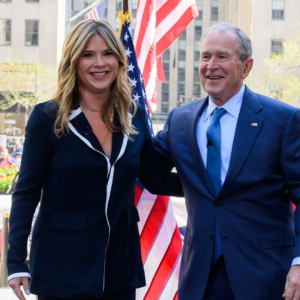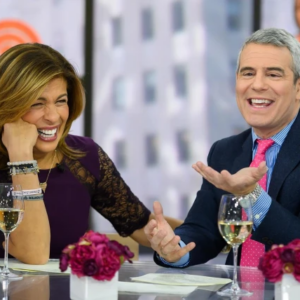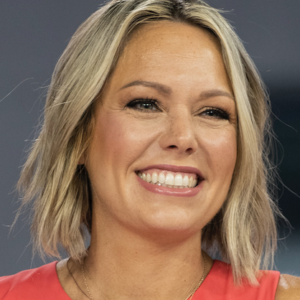Al Roker and NBC found themselves at odds over the scandal involving Ryan Lochte. Roker’s candid remarks on the swimmer’s fabricated robbery story put him in direct conflict with his network. This high-stakes clash exposed deeper issues within media corporations, ethics, and public accountability. Read on to uncover the full story behind this media storm.
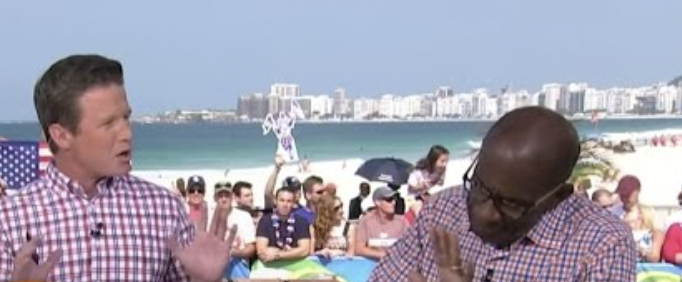
Image: Getty Images
Al Roker Calls Out Ryan Lochte: A Moment of Media Honesty
In the aftermath of the Rio Olympics scandal, where Ryan Lochte falsely claimed he was robbed at gunpoint, media responses varied. However, Al Roker stood out as one of the most vocal critics, unapologetically calling out Lochte’s dishonesty on the TODAY show. His straightforward condemnation—”He lied to you, he lied to Matt Lauer, he lied to his mom, he left his teammates hanging while he skedaddled”—struck a chord with viewers who were frustrated by the Olympic swimmer’s fabricated tale.
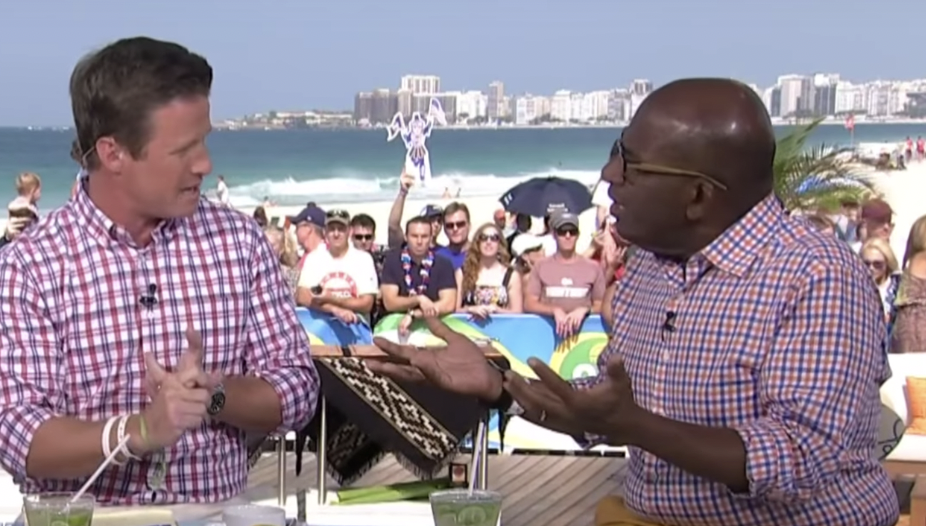
Image: Getty Images
While many fans applauded Roker’s honesty, NBC executives were reportedly less than thrilled. The network, which held broadcasting rights for the Olympics, found itself in a precarious position. Lochte, despite his scandal, was still a notable athlete and a significant media figure, meaning NBC had to tread carefully in handling the situation. Roker’s blunt criticism, however, made it clear that he was not concerned with corporate diplomacy.
The NBC Dilemma: Corporate Interests vs. Journalistic Integrity
NBC’s unease with Roker’s response stemmed from its complex ties to the Olympic Games and its business relationships. As a major media conglomerate, NBC had invested heavily in its Olympic coverage and the athletes it spotlighted. Any controversy involving a prominent Olympian like Lochte had the potential to create tension between the network and key stakeholders, including the U.S. Olympic Committee and major sponsors.
Behind closed doors, reports suggested that NBC executives were scrambling to mitigate the fallout. According to sources, some network insiders were concerned that Roker’s unfiltered response placed them in an awkward position. While viewers saw his remarks as a necessary critique of Lochte’s behavior, NBC allegedly viewed them as an overreaction that might alienate key Olympic partners.
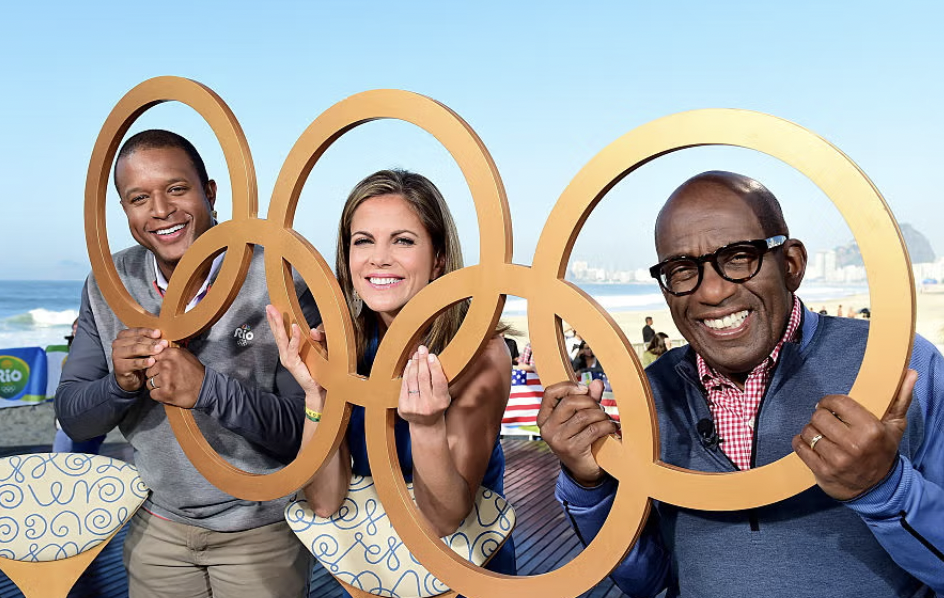
Image: Getty Images
One insider claimed, “There were several producers and talent who were left trying to explain Al’s over-the-top behavior. Several insiders found themselves wanting to distance themselves from his response.” However, publicly, an NBC executive attempted to downplay any internal discord, stating, “No one feels this way. In fact, everyone here is happy—specifically with the TODAY show’s great ratings.”
This contrast between public statements and private tensions highlights a fundamental challenge within major news organizations: the balance between journalistic responsibility and corporate interests. While media personalities like Roker are expected to uphold truth and accountability, they also operate within a corporate structure that often prioritizes business relationships over controversy.
Public Reaction and the Power of Honest Journalism
The public’s response to the Roker-NBC clash overwhelmingly sided with Roker. Viewers admired his willingness to speak candidly, especially in an era where media organizations are often criticized for softening their stance to maintain professional relationships. Social media erupted with support, praising Roker for refusing to sugarcoat the reality of Lochte’s actions.
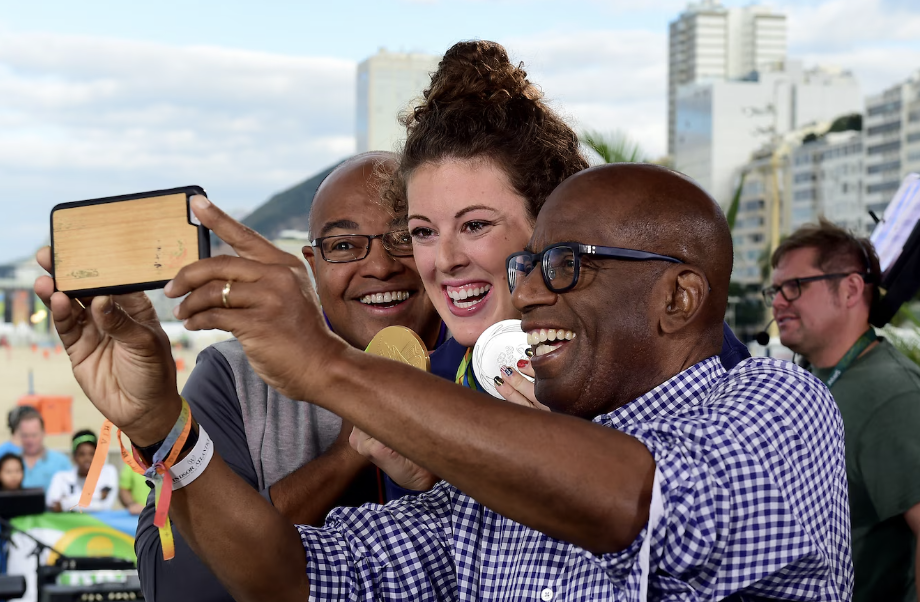
Image: Getty Images
Many saw Roker’s response as a much-needed example of media figures holding public personalities accountable. The controversy wasn’t just about Lochte’s lie—it was about how public figures, particularly celebrities and athletes, are often shielded from real consequences. Roker’s refusal to downplay the incident resonated with audiences who were frustrated by Lochte’s ability to escape serious repercussions for his actions.
While NBC may have worried about the corporate fallout, Roker’s unfiltered honesty arguably strengthened his credibility with viewers. It reinforced his reputation as a journalist who values truth over corporate appeasement, a trait that audiences find increasingly rare in mainstream media.
A Defining Moment for Media Integrity
The showdown between Al Roker and NBC over Ryan Lochte’s scandal was more than just a workplace disagreement—it was a defining moment in modern journalism. It underscored the ongoing tension between truth-telling and corporate interests, a conflict that plays out in newsrooms worldwide.
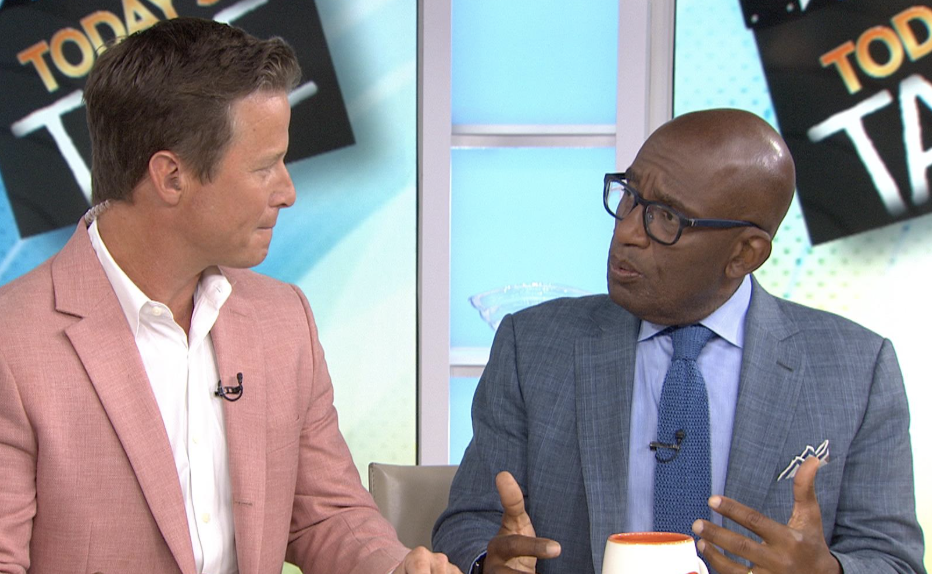
Image: Getty Images
While NBC may have been concerned about its Olympic relationships, Roker’s response proved that journalistic integrity still matters. His candid critique not only set a higher standard for media accountability but also reaffirmed the importance of transparency in journalism.
As media consumers, it’s crucial to support journalists who prioritize truth over corporate convenience. If you want to stay informed on media controversies and journalistic integrity, follow Al Roker’s work and keep questioning how major networks navigate difficult stories. The battle for honest journalism is far from over!
